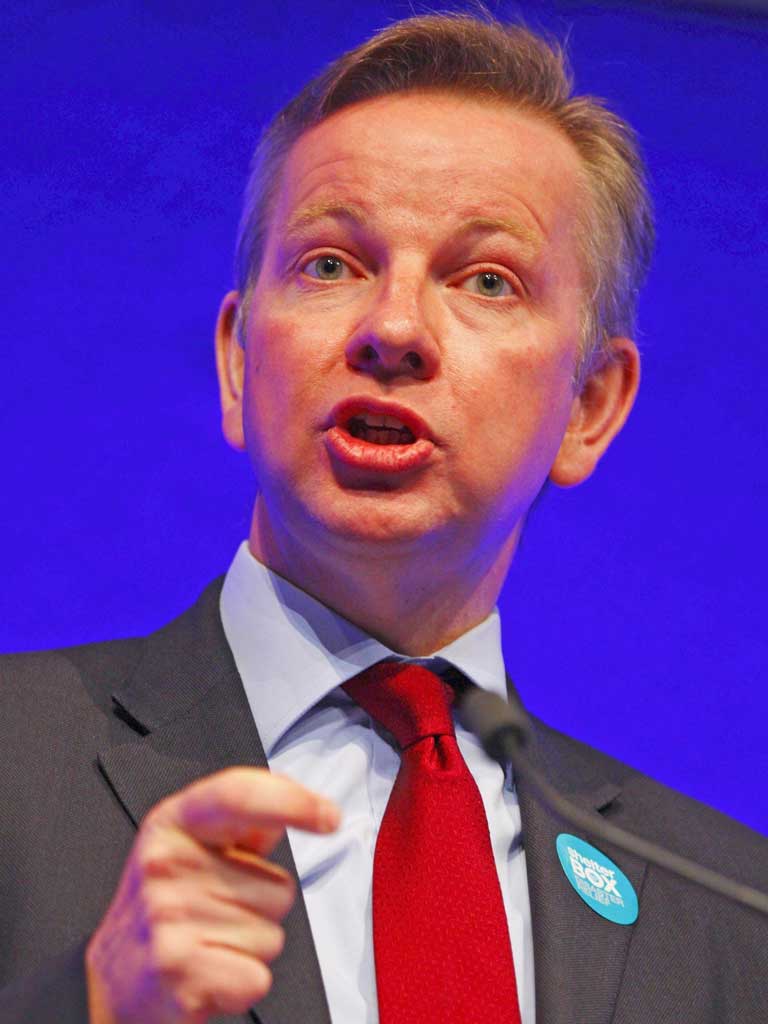'Golden age' never happened, head teachers' leader tells Gove
Education Secretary's talk of standards being better in the 1950s is dismissed as being misleading

The Education Secretary, Michael Gove, is obsessed with a golden age that never happened, according to the general secretary of the head teachers' union.
Russell Hobby, of the National Association of Head Teachers, says Mr Gove's belief that education was better in the 1950s and 1960s is misleading as only a small percentage of the population took formal exams at 16.
"There are now five times as many pupils who get five A* to C grades at GCSE [the equivalent of the former O levels] than did in 1968," he said. "But that age is held up as the golden age for education when everyone left school able to read and write.
"There was no golden age of education. It felt good then because we were only concerned about the education of a minority of children. If it feels bad now, it is because we consider ourselves accountable for the education of every one of them."
Mr Gove has made no secret of his desire to return to a more traditional curriculum concentrating on core subjects. He has called for history lessons to focus on British events so children would "take pride" in their country.
"I don't believe it's necessarily propagandistic to have a national curriculum broadly sympathetic to our past and our values," he said.
He also caused a stir when he announced plans for ex-servicemen to be to help instil discipline in schools.
Mr Gove said: "They have many of the virtues that parents feel have disappeared from our schools and need to be restored: self-discipline, a sense of purpose and a belief in the importance of working as a team."
Mr Hobby, who was speaking in advance of his association's annual conference this coming weekend when delegates are expected to give Mr Gove a rough ride over his policies, also attacked the Education Secretary for his criticism of literacy standards in primary schools.
He pointed out that in 1995, only 49 per cent of pupils reached the required standard in reading and writing at the age of 11. The figure now is 82 per cent.
"Of course, we need to help the 18 per cent," Mr Hobby said, "but the way to do it is by helping build their character and confidence not by castigating what has happened. That will send us backwards not forwards. I don't personally dismiss the need for the core skills of reading and writing, but employers are saying they want people who can solve problems and work with colleagues as well."
School then and now
1950s/60s curriculum
Based on English, maths, science, history, geography, Latin and modern languages. Selection meant one in four pupils went to grammar school. The rest went to secondary modern schools. The cane was used and class sizes were likely to be larger.
21st century curriculum
Some authorities retain selection with grammar schools, but most pupils are taught in secondaries. As well as national curriculum tests at 11, GCSEs and A-levels, there is a reading test at six, assessments in maths and English at seven and AS-levels at the end of the first year of the sixth-form. Teacher surveys regularly show fears about discipline.
Subscribe to Independent Premium to bookmark this article
Want to bookmark your favourite articles and stories to read or reference later? Start your Independent Premium subscription today.

Join our commenting forum
Join thought-provoking conversations, follow other Independent readers and see their replies